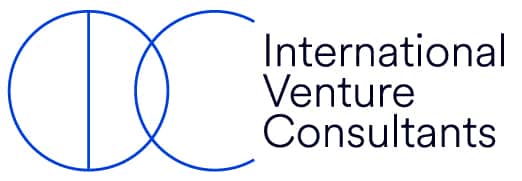On February 27th the resolution of February 6th of 2023m of the Directorate General of the Tax Administration, was published in the Official State Gazette (BOE), approving the general guidelines of the Annual Tax and Customs Control Plan 2023. This Plan sets out the orientation of the Tax Agency’s actions, and breaks down the actions to be carried out by the Tax Agency in 2023, which revolve around the following pillar:
- Information and assistance
- Prevention of non-compliance, with the Tax Agency encouraging voluntary compliance.
- Fraud verification actions.
- Collaboration between the Tax Agency and the Administrations of the Autonomous Communities.
The following is a summary of the most relevant measures included in the plan 1.
Information and assitance
As a new development for 2023, the Tax Agency is working on implementing a new assistance model that integrates all existing channels and makes it easier for taxpayers to decide how they want to be attended to.
A complete service charter will be defined to enable taxpayers to find out about all State Tax Agency (AEAT) services to streamline communication. It will also be accompanied by a new, more agile, and intuitive prior appointment application.
In the area of personal income tax (IRPF) returns, the aim is to improve the contents of the “income informer” and the navigation of the Renta Web service will be redesigned to make it as intuitive as possible.
In the area of corporate income tax (IS), the information on tax data will be increased, which will include outstanding credits from previous years and extra-accounting adjustments from the previous year. In addition, work will be done on the possibility of bringing forward corporate income tax refunds for SMEs (PYMES).
Prevention of non-compliance.
Within this section, the main lines of action are as follows:
- • Census: The aim is to purge the census of entrepreneurs in order to deregister those entities that do not meet the requirements for registration.
- Submission of declarations: Control of the filling of both self-assessments and informative returns, through the data reported in the SII. Likewise, control actions will be carried out on data reported in the SII.
- Reinforcement of customs control, especially for companies starting their import activity.
Proceedings for the verification of tax fraud.
For some years now, Spain has been collaborating with different jurisdictions to promote the exchange of information. The information obtained is intended to improve international tax transfer information and to be used for the analysis of tax risks in Spanish territory. Apart from continuing to work along these lines, the main lines of verification will be directed at the following areas:
- Multinational groups, large companies, with special emphasis on transfer pricing, corporate restructuring, valuation of intra-group transfers or assignments, or deduction of certain items that may significantly reduce the tax base.
- 360º transfer pricing strategy, promoting prior valuation agreements and amicable procedures.
- Review of payments to non-residents, and correct application of withholdings established in bilateral agreements, especially dividend, royalty, and interest payments.
- Special review of tax groups, irrespective of their size and structure, especially in relation to issues such as the offsetting of BINs and compliance with the requirements for consolidation.
- Analysis of the assets of individuals: Control of the tax residence of large estates to avoid situations in which tax residence is fictitiously declared outside Spain. In the same way, those persons who come to live in Spain but pay tax as non-residents, leaving their worldwide income untaxed in Spain, will also be checked.
- Control of the simulation of tax residence in an Autonomous Community other than the real one, with the intention of benefiting from lower taxation.
- Implementation of tools for the massive use of information on real estate and companies from the General Council of Notaries, as well as information on real owners of companies.
- Interposed companies: Control and monitoring of companies fully controlled by an individual or family group, to avoid the transfer of income to the company, which should be taxed at the partner’s headquarters, as well as the control of personal expenses of individuals.
- Presence in sectors and business models where there is a risk of a black economy.
- Physical presence of the inspection authorities in the places where economic activities are carried out to reduce irregularities of a formal nature.
- Control of the false economic activity of luxury goods (aircraft, boats and high-end automobiles).
- Follow-up of the preventive control measures of the Register of Intra-Community Operators (ROI) to prevent VAT fraud.
- Corporate Income Tax (IS): In 2023 the inspection will initiate proceedings where there are pending negative tax bases or pending tax credits.
- Special review of structures created to unduly benefit from deductions and other tax benefits, such as EIGs.
- Fiscal control over investment in cryptocurrencies.
- Control actions within the framework of relations with the Regional Tax Authorities.
- Actions to verify refund applications when, due to the amount or type, it is appropriate.
- After the pandemic, the inspection visits known as “tax combing” will be resumed, focusing mainly on the real estate construction sector.
- Implementation of the VIDA plan (VAT in the Digital Age), which proposes a series of measures to modernize VAT.
Actions for the verification of customs, excise and environmental fraud.
The Tax Agency will focus on the verification of these taxes, post-import foreign trade actions (control of the value declared in customs) and control of e-commerce operations. All this without forgetting the prevention and repression of smuggling, drug trafficking and money laundering as the focus of Customs Surveillance actions.
Collaboration between the Tax Agency and the tax Administrations of the Autonomous Communities.
For 2023, it is planned to continue and reinforce the exchange of information between the different administrations, such as information on large families, degrees of disability, information on deposits derived from property rental or energy efficiency certificates registered in 2022.


